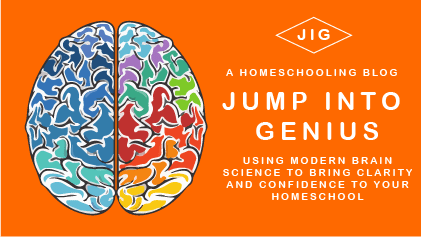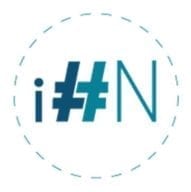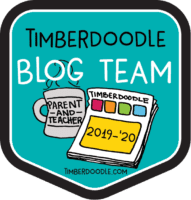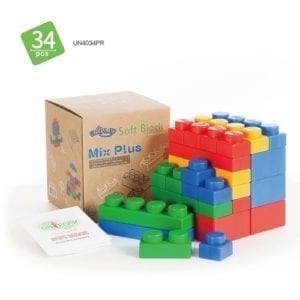Literature is better than textbooks for history, even in high school. As your kids get older and you know you need to start tracking credits to fill in a high school transcript, you might be tempted to switch to textbooks. But textbooks are the fastest way I know of to turn off your child’s curiosity and turn learning into a chore. Every once in a while I end up reading a few chapters of a textbook. One time it was an art history textbook that I was reviewing. I was all geared up for how fascinating it was going to be, and then, within 10 minutes, not only were my teens spacing out but I was struggling to stay awake. Another time we came across a free test prep program for CLEP tests. Turns out it was heavily text book based and we did not get through a week before we threw in the towel and switched to something more interesting.
History is a Story
The thing is, we didn’t need to slug through a lengthy boredom inducing treatise on either of those subjects. What we needed were interesting stories. And history is stories. It is stories of people and places and events. When we take the story out of history we degrade it. Taking the story out is very much like taking the humanity out. And the whole point of studying history is to understand humanity, both our own, and everyone else’s, on a deeper level.
Without the stories and humanity of history we just have some bland date and names. This is ultimately a destruction of what history is and always has been. It is the reason why people think it is fine to erase the parts of history they don’t like. Deep down inside, it doesn’t feel any different than burning a fictional book that they disagreed with. Because they have not connected to history as the reality of our shared past.
So whether your child is ready to study with original ancient stories and texts, or if they are going to be more engaged with a modern mix a literature thrown in, whatever you do, keep the literature in their history program.
Learning History through Literature is a Curiosity-Driven Approach
Motivation is a key to deep learning. Parents often wonder how they can motivate their kids to learn. This is especially true of high schoolers, who are not going to care about some of the external rewards (like stickers) that might get younger kids excited. And that is a good thing, because high schoolers are transitioning to being internally motivated. Of course, even adults respond to external motivation (like getting paid) but we also need a strong internal motivation to spend the time and effort to do the things that we think are important (like vacuuming the house when no one is watching, or working on that big project that no one is going to pay us for).
The thing is, curiosity is one of the primary motivating factors when it comes to learning and this is true of both babies, children, teens, and adults. One of the best ways to turn up motivation is to turn up curiosity. And curiosity is a very internal motivation. You are driven from some place inside you without any thought of what material benefit you may get out of it.
Curiosity is important for motivation, and stories, told well, are one of the best tools to increase curiosity.
Disclaimer: I received a free package from Beautiful Feet Books and compensation for my time spent writing this content. I am not required to write a positive review. The following are my own honest opinions of the Ancient History curriculum package.
This course is designed for Christian homeschoolers. Although I did not find any theological content. Bible readings are included in assignments. I think some secular homeschoolers would be comfortable with this program, and can easily skip the Bible readings (other assignments (so far) are not dependent on completing them.) The website notes that when selling to Charter schools they do not include the teacher guide because of religious material. But I think the guide is essential and you would be better off just adapting it to your needs.
Teaching History with Literature Curriculum is Easier with Guided Lessons
I don’t know about you, but my high schoolers do most their school work independently. If we are studying something together it is because mom just wants to be involved. But I don’t have time to study every subject with every kid. And also, not all my high schoolers are following the same course of study, because they are different kids with different needs, interests, and plans for the future. The guided lesson plans that come with Beautiful Feet Books Ancient History are written directly to the student.
Timelines
One of the difficulties with using a literature approach to high school history is that you want to make sure your child is getting a good view of the progression of history through time. This is solved in the Beautiful Feet Books curriculum with their timeline resources and assignments.
Geography & Maps
Another aspect of history I like to include is geography and maps. These can be dry subjects when studied in a vacuum. But can be wrapped into history and literature studies rather easily with a good curriculum. Beautiful Feet Books covers geography with the map work they assign to students.
A little engaging text to connect the dots
The last thing that can be difficult is just filling in the details. A good high school level study of history needs a little text to connect the stories. This is done with the Beautiful Feet Books guide. High Schoolers can use this guide directly on their own, no parent needed.
The guide also includes assignments, both reading, writing, and hands-on extras. The student does not need to do all the hands-on work, but it is there for kids who like those type of projects. There is also a great variety in the types of projects that are available to choose from. My daughter loves baking and cooking and is likely to try the recipes activities.
Suggested Videos & Extras
Another thing I love about the guide is that is has a practical list of other resources you can get if your student wants to explore the time period being studied further. My favorite part of that resource section are the documentaries they include, and that they even tell you what streaming service the video is available on. Watching well-made documentaries just adds a level of visual detail to history studies and is another great way to nurture curiosity.
My daughter found Beautiful Feet Books Ancient History for High School is Easy-to-Use
My daughter worked through several of the lessons in the Ancient History High School guide and she loved it. She plans to continue working through the course next year (which will be her freshman year of high school; she was completing 8th grade when she used these lessons.)
Stories are Cognitively Privileged
No matter what curriculum you decide to use for high school history, keep in mind that stories are given preference by our brains. This means that we remember and understand content more easily when it is presented in the format of a story. You can read more about what helps kids learn here.



